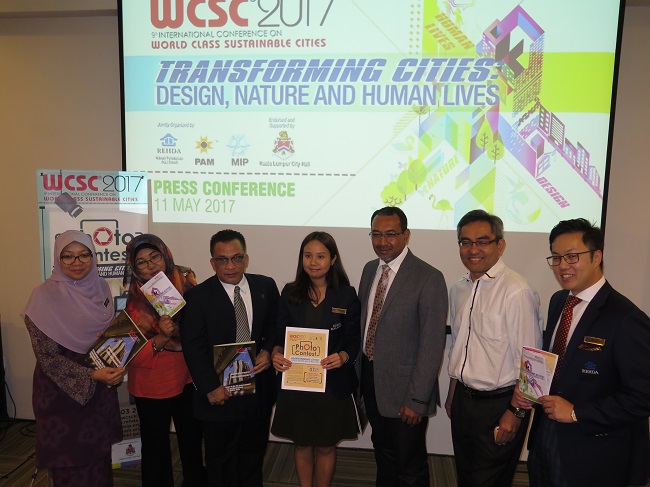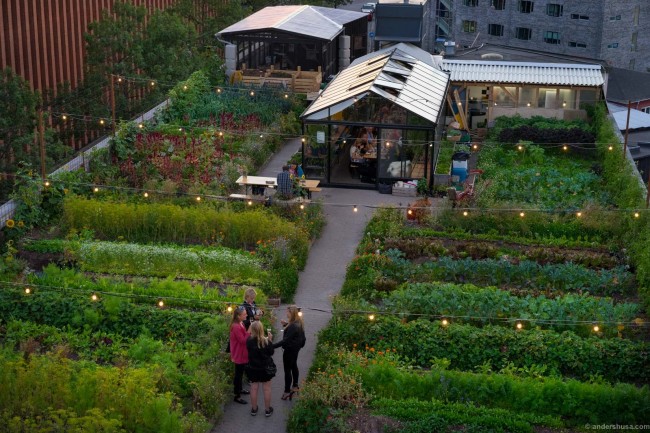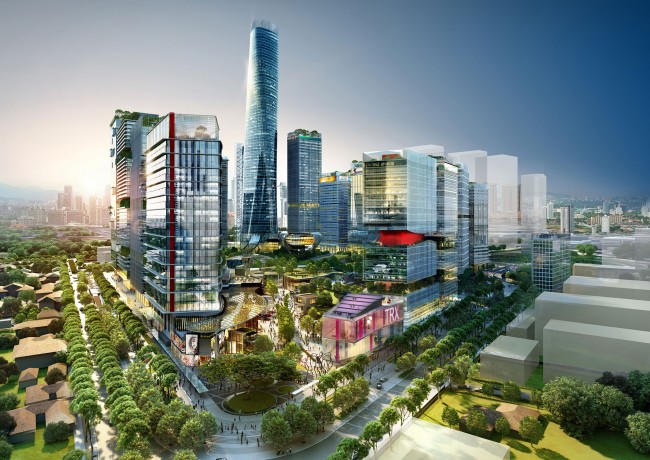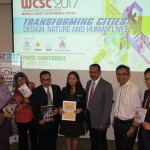Cities undergo constant evolution and development to cater to the needs of the urban population as it would provide a better and sustainable quality of life.
The towering skyscrapers and ginormous structures have resulted in a diminishing green space within cities, in which needs to be revisited and addressed to create a sustainable and holistic environment.
Instead of focusing on the spaces that can be built on, it is important to understand and be aware on how to integrate open spaces with greenery said Copenhagen Denmark’s chief city architect Tina Saaby Madesen at the 9th International Conference on World Class Sustainable Cities 2017 held recently.
Image sourced from Andershusa
Madsen pointed out that nature can make people happier and healthier and the investment in urban nature is cheaper compared with the investment in blocks and bricks.
On how to incorporate that, she suggested for open spaces to be built within walking distance for communities to utilise that will enhance living.
Hence, she urged stakeholders to recognise that nature is an essential complementary element to a city’s development, during her talk entitled “Integrating Nature to Make Cities Resilient and Livable”.
She stressed that we must start thinking holistically and work together across all sectors to ensure that landscaping is incorporated from the beginning stages of planning.
In providing solutions which were successfully adopted in Copenhagen, Madsen shared that to realise all these strategies and approaches, political ownership is very important, as, without the support from politicians, it will be very difficult to have a holistic thinking in the development of a city.
She also suggested having a separate budget for building the outdoor and indoor environment to avoid spending all the money solely on the design of buildings and omit the quality of the former.
Image sourced from Tun Razak Exchange
Tun Razak Exchange (TRX) Lifestyle Quarter managing director, Stuart Mendel who presented on “Charting a Sustainable Path Forward” opined that sustainability needs to be integrated from the beginning as it will make a tangible difference in tailoring into the mindset.
He quoted the TRX City development as a forefront in keeping to three sustainable visions — to be “healthy, green and connected” where public accessibility and connectivity such as the mass rapid transit and bike sharing services are already being implemented prior to the completion of the RM8 billion development.
The project’s 10-acre urban park is poised to target various green goals such as zero waste by 2030, low water footprint and Gold in Leadership in Energy and Environmental Design and Green Building Index.
This year’s WCSC 2017 was jointly organised by the Real Estate and Housing Developers’ Association Wilayah Persekutuan Kuala Lumpur, the Malaysian Institute of Planners and the Malaysian Institute of Architects. It is endorsed and supported by Kuala Lumpur City Hall.
WCSC 2017 organising chairman Datuk Wan Hashimi Albakri lauded this years’ increase in participation as a testament in learning and adopting measures in making our cities more sustainable and liveable.
Image sourced from Rehda Kuala Lumpur
He added that the WCSC platform has welcomed many globally renowned and acknowledged speakers in their respective fields, for their innovative ideas and solutions towards present and future urban planning issues and challenges in providing a better and sustainable quality of city life.
“So, it is only appropriate that this platform facilitates the sharing of best practice ideas for the growth of our city,” said.
In addressing public spaces and its usages, PAM council member Mustapha Kamal Zulkarnain was quoted in a daily news stating many public spaces in Kuala Lumpur are under-utilised and have no connection with developments around the area which resulted in wasted space.
Citing New York Central Park as an example that connects to all cardinal directions, he commended for organised developments to be built around the parks so the public can fully utilise them by walking through the park to get to another location.
Image sourced from Rehda Kuala Lumpur
This article was edited by the editorial team of PropertyGuru. To contact them about this or other stories email editorialteam@propertyguru.com.my
>For the latest property news, trends, resources and expert opinions, visit our Property News section. Home buyers, sellers or property renters looking for Malaysian Properties, may like to visit the New Launches or Project Reviews page.






